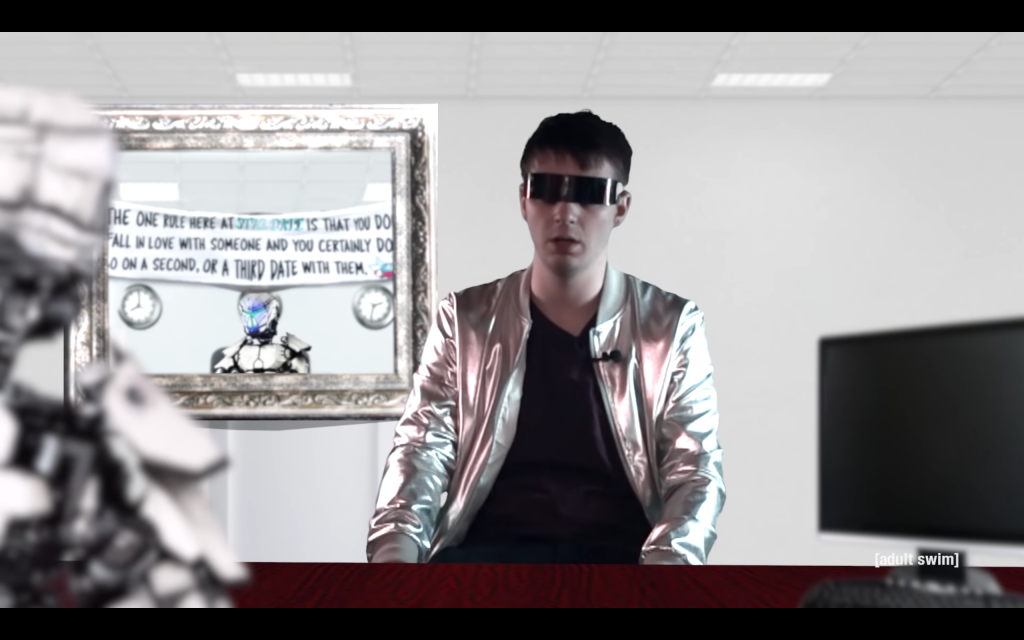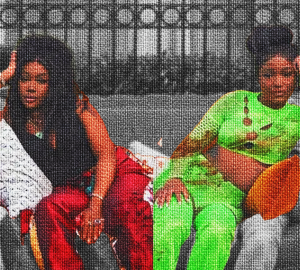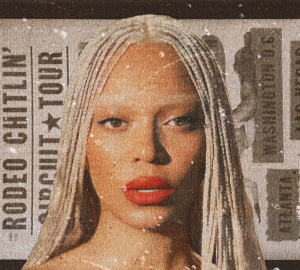Interviewing Adult Swim’s Austen Reeder: Part two

Austen Reeder is an up-and-coming artist and comedian from California. His short form comedy series “Star Boat,” recently aired on Adult Swim’s YouTube and live streaming platforms. The Connector had the chance to speak with Reeder about his creative process and his experience working with Adult Swim.
The Connector: How do you feel about the collaborative aspects of the process and do you have a collaborative team you work with for your personal projects?
Reeder: Well, the people in Atlanta will give me a couple of pointers every now and again, but I’d say 99 percent of it they just let me do whatever I want — which is fantastic. I can’t think of anywhere else that would let me do that. But, I do have a small group of friends whose opinions I really care about — people I’ve met at screen writing classes or community college — basically people who get the show.
A lot of the workshopping I do alone in my car while I’m in traffic. I have a little mount for my phone and I’ll press record audio and talk to myself for an hour and a half to try and find a good little bit. It’s weird. Most of it is me alone trying to work on things and then I show them to people and try to gauge their reaction. It definitely is important to find a small team of people whose opinions you trust.
The Connector: For sure. I also noticed from a photo on Instagram that you use Dan Harmon’s “Story Circle” model in your writing.
Reeder: Yeah, the way that I learned how to write — it feels kind of disingenuous because I am 22 and I’m definitely still learning all of this stuff. Dan Harmon’s “Story Circle” is really useful. I love all of the guides he wrote for “Channel 101,” they were all really helpful.
The Connector: When you are coming up with new ideas, does it start with a visual concept and then you apply the structure later?
Reeder: I write a couple of things that I think would look visually interesting. But a lot of what ends up happening is, I’ll be editing and I’ll go, “Oh wow, that would be really good right there to have some sort of visual gag.” Then I’ll have to go back and reshoot and figure out how to execute it. I would say half of it is writing stuff that I think is funny and the other half is in the edit bay. It is definitely a lot of back-and-forth, figuring things out.
The Connector: Is it difficult to dive back in and reset to get back to that moment you want to add to so it can sync up with the rest of the video?
Reeder: I’d say it’s pretty easy. There’s no props so, it’s just a chair and the green screen. Yeah, it’s pretty easy to run back-and-forth and keep trying new stuff.
The Connector: I guess that’s the beauty of being just a guy in front of a green screen.
Reeder: Yeah. [laughs]
The Connector: [laughs]
Reeder: Definitely makes it a lot easier to go back.
The Connector: Do you have any upcoming projects that you’d like to talk about?
Reeder: Yeah, I’m not exactly sure when new stuff will be coming out, I am working on a longer format version of “Star Boat,” but it is definitely in the preliminary stages so hopefully at some point in 2019 there will be a much longer version of it.
The Connector: Very cool, do you have aspirations to do longer form projects in general? Or is short form something you specifically enjoy?
Reeder: Usually when I make short form stuff it is supposed to be 60 seconds long but always ends up being two or three minutes so I have to cut it down. So, I definitely enjoy how fast the short form stuff goes and I think it is really cool, but it’s a struggle to keep things to 60 seconds. I would probably prefer to do something a little longer that can stretch out and have the story flow a little less insanely.
The Connector: I find everything that you do very impressive and I think your advice would be valuable. So even though you have just begun your journey in your career, what advice would you give to aspiring artists who are looking to get noticed and get their work out there?
Reeder: That’s a very good disclaimer [laughs]. I am just 22 and this is one of the first things I’ve made so I have very limited experience. But I would say — every artsy college teachers say this but it’s very true — “If you like making stuff, just go out and make stuff.” Because there’s a dozen Sundance movies shot on iPhones now and we have the technology. So, just go out and make stuff.
I learned how to make my little shorts by watching YouTube videos, reading screenplay and filmmaking books, tutorials and Dan Harmon’s guides like we talked about earlier. I think the hardest thing for me is finding the balance between judging and trusting yourself. If you critique yourself too hard, you end up in a whiny self-hating headspace. But then if you are too confident, you just end up being lazy. So, it is a constant tight rope walk, and if you lean too hard either way it’s going to suck. That’s something that’s really hard and scary, but it’s about finding that little sweet spot.
The Connector: Definitely, that’s a huge thing with people that are closer to our age and trying to start out — there is a whole bunch of self-doubt involved. Along those lines, what was it like interacting with the audience once “Star Boat,” came out?
Reeder: It was definitely hard [laughs], there is just this faceless mob of 12 and 13 year olds telling you to kill yourself. And, going into it I always thought, “I’m not going to care about the comments, I’m not going to be one of those people, it’s the internet. I’m not going to care.” But, once it actually happens, you do care [laughs].
But, I think I am getting a heavier filter now — especially working with the people I work with over at Adult Swim. They don’t really seem to give a shit about the comments. Whereas other companies might say, “This isn’t playing well we need to try to make this better.” They are just like, “It’s comments, who cares.”
It definitely hurts. Criticism always hurts, but you kind of need to get into the headspace of, “What was I doing at 13? I was pretty cringey as well.”
The Connector: Right, and I think Adult Swim is unique in that way because whatever gets made and especially whatever gets posted to their YouTube channel is always going to get an initial wave of people saying, “Why is this being made instead of X-Y-Z?” And, that also has to be a great way to really develop that thicker skin for critique. If one of your first experiences is dealing with having the Adult Swim community saying, “Why is this not Rick and Morty,” you can probably handle anything after that.
Reeder: Absolutely, it’s definitely a great way to dive right into feedback.
Check out Austen’s work here, and keep an eye out for more later this year.




























